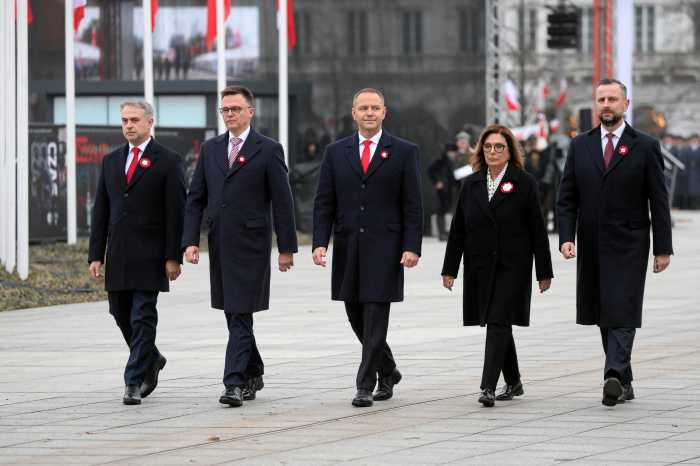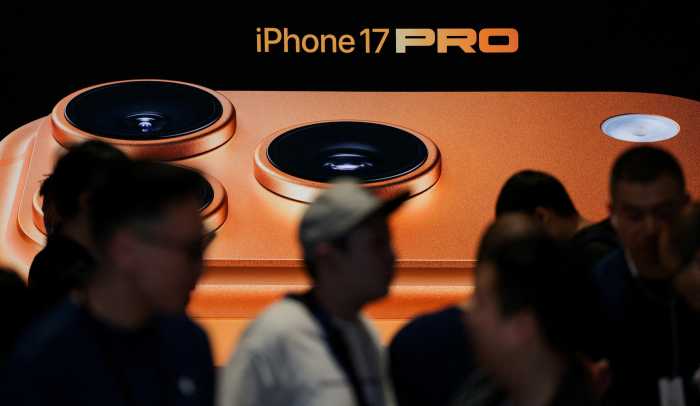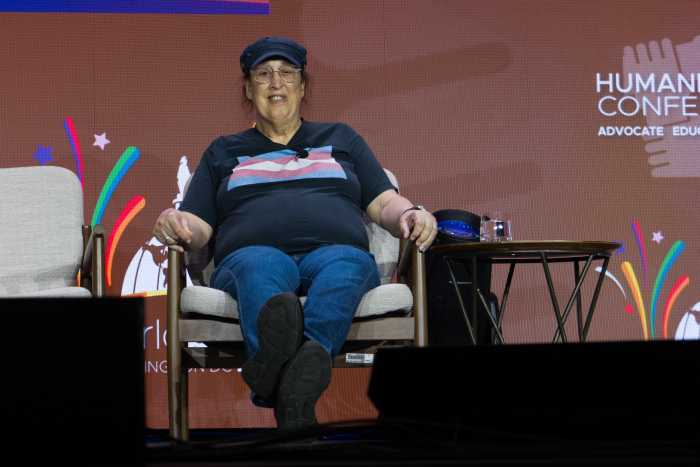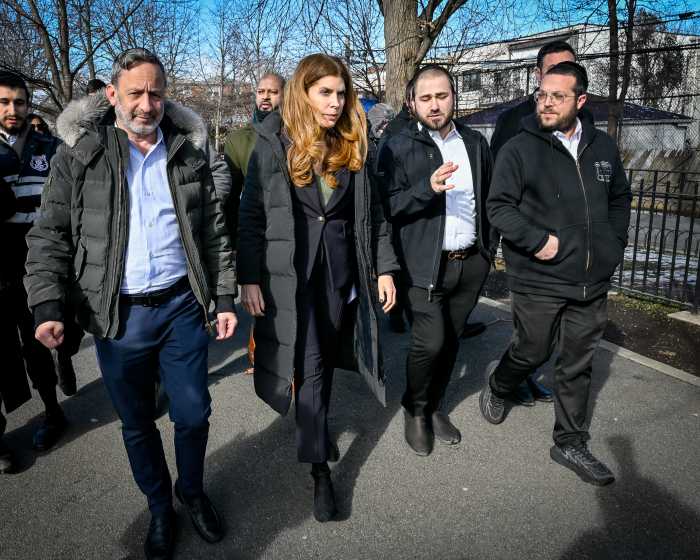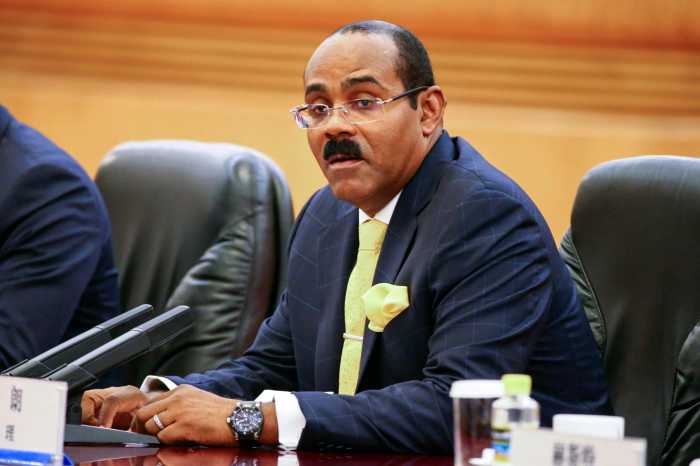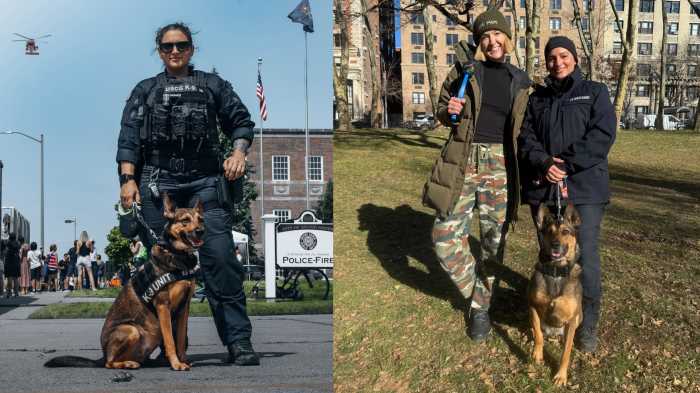The harsh crackdown on dissent in Vladimir Putin's Russia that accompanied Sunday's parliamentary elections also targeted gays, as more than a dozen gay activists were arrested inside a polling station in that nation's capital.
The harsh crackdown on dissent in Vladimir Putin's Russia that accompanied Sunday's parliamentary elections also targeted gays, as more than a dozen gay activists – including Nikolai Alexeyev, the young lawyer who is the chief organizer of Moscow Pride – were arrested on December 2 inside a polling station in that nation's capital.
Alexeyev and his fellow activists were attempting to cast ballots which they had deliberately spoiled by writing “No to Homophobes” on them. Two weeks previously, a group of LGBT activists had called for such a spoiled-ballot protest to underscore that no political party running in Sunday's elections supports gay and lesbian rights.
“Our arrest was ridiculous – we did not shout slogans, we carried no placards, we were simply there to cast our ballots of protest,” Alexeyev told this reporter by telephone from Moscow on Monday night following a court appearance. Police neglected to bring the proper papers charging him, so the hearing was put off for one week.
The widespread repression targeting political dissidents and opponents of Putin during the election campaign, Alexeyev told Gay City News, “shows that there is no real freedom of expression in Russia now – and it is getting worse and worse.”
“It is obvious now that our society is ill, that it is being exploited by the authorities and by the media who belong to those authorities,” Alexeyev added.
Alexeyev and his fellow activists had chosen that particular polling station, which usually serves as a school, for their protest because that was where Moscow's notoriously homophobic Mayor Yuri Luzhkov – who has twice banned Moscow Pride demonstrations as “satanic” – was scheduled to vote. (See this reporter's May 17-23, 2006 article, “Moscow Pride Banned Again.” The web urls to this and other past Gay City News stories on the gay rights struggle in Russia appear at the conclusion of the online version of this story at gaycitynews.com.)
Alexeyev said that there was a lot of media, including foreign press and TV, at that polling station, which was filled with police, militia, and Federal Security Bureau agents, and surrounded by five law enforcement buses.
“We think we were arrested because the police and Luzhkov's people feared we'd stage some sort of provocation in front of the media,” Alexeyev said, adding, “We were wearing rainbow flag badges, and Luzhkov's press secretary, Sergei Tsoi, pointed us out to police. Tsoi knows me, and he'd passed right in front of me.”
Tsoi, known for his homophobic public comments, physically assaulted Alexeyev at a London press conference given in March in connection with a summit meeting of European mayors, at which Alexeyev had appeared to protest Luzhkov's repeated bans on the Pride march. Alexeyev subsequently swore out a criminal complaint for assault against Tsoi with the London police.
“Mayor Luzhkov is not only a close ally of Putin, he is a key figure in Putin's United Russia party, and headed its list for the parliamentary elections here in Moscow, so he is closely connected to the political repression here,” Alexeyev said.
Intimidation, harassment, and arrests of political opponents – like world chess champion Garry Kasparov, head of the opposition party The Other Russia – and denial of billboard rental or air time on TV to Putin's opponents were reported across Russia during the election campaign, allowing the president's United Russia party to win a landslide victory on Sunday. The vote tally gives Putin a huge majority of two-thirds in Russia's parliament, the Duma, thus cementing his personal control of that nation.
“These elections were a fake,” Alexeyev said, noting that “we've always had vote fraud, but this time there was a massive violation of electoral laws, and all you could see everywhere on billboards and on television was 'United Russia, trust our leader,' and all that bullshit.”
However, Alexeyev pointed out there was one bright spot in these elections.
“Many of the most vocal homophobes were eliminated from the Duma,” he said.
“For example, the deputy Nikolai Kuryanovich, who had introduced very homophobic bills in parliament and constantly made nasty public comments about gays when he was in the Liberal Democratic Party, left it to run as an independent, and was not elected on Sunday,” Alexeyev said.
Kuryanovich had joined the band of nationalist thugs and fascists who violently broke up the 2006 attempt to hold a Moscow Pride march. (See this reporter's June 1-7, 2006 article, “Police, Fascists Crush Moscow Pride.”)
Another arch-homophobic Duma deputy who won't be returning to the parliament is Alexander Chuev, whom Alexeyev outed on June 21 this year on a talk-show on NTV – calling him “gay, a coward, and a hypocrite.” Alexeyev told this reporter that “Chuev had joined the small, Putin-controlled Fair Russia party, but in the region where he was running the party did very badly, so he'll likely be out of the Duma as well. Chuev had introduced a lot of bad bills criminalizing propaganda for homosexuality and things like that, and regularly attacked homosexuality in his speeches.”
“Many of the homophobic deputies in the Motherland party, which had dissolved into the Putin-controlled Fair Russia, weren't included in Fair Russia's lists of candidates, and so will be out of the Duma too,” Alexeyev went on, adding, “Putin and his people simply wanted to eliminate anybody who was too individualist or too nationalist, who try to go their own way and be populistic – which most of those Duma homophobes were – in order to create a new, technical, rubber-stamp parliament, so Putin kept such people off the lists of candidates he controlled.”
But despite the absence of a number of these homophobes from the new Duma, in the wake of Sunday's elections, Alexeyev said, “the situation is not changing. Whenever you apply for a permit for a demonstration or an event, and include the words 'gay,' or 'homophobia,' or 'homosexual,' or 'lesbian,' you will be denied permission to meet or march for so-called 'security reasons.'”
There will be no possibility for Moscow Pride or any other gay public event to happen legally “before the European Court of Human Rights in Strasbourg renders its decision in the case we brought before it to overturn the ban on the first Moscow Pride of 2005,” Alexeyev said.
Russia has been a signatory to the European Convention on Human Rights, from which the court draws its authority, and a member of the Council of Europe since 1996.
“But, unfortunately, the European Court is being very slow – they haven't even begun asking the Russian authorities for their views on the case, and even after they get the government's position they'll still have to consider the case – so we don't expect a decision in time for Moscow Pride 2008,” Alexeyev predicted, adding, “At the earliest, it will come before Moscow Pride 2009 – and when we get a decision in our favor, as we confidently expect, this will have a big impact on other gay events that have been banned.”
Alexeyev also foresaw police intimidation of gays as continuing unabated.
“Just yesterday, one of our activist's family, who live in the provinces, was visited by the police, who told the family, 'Look at what your son is doing with these gays – if he doesn't stop, we'll have your other son expelled from the military academy,'” Alexeyev reported. “That shows that this repression is nationwide, not just in Moscow.”
DOUG IRELAND can be reached through his blog, DIRELAND, at http://direland.typepad.com/direland.

